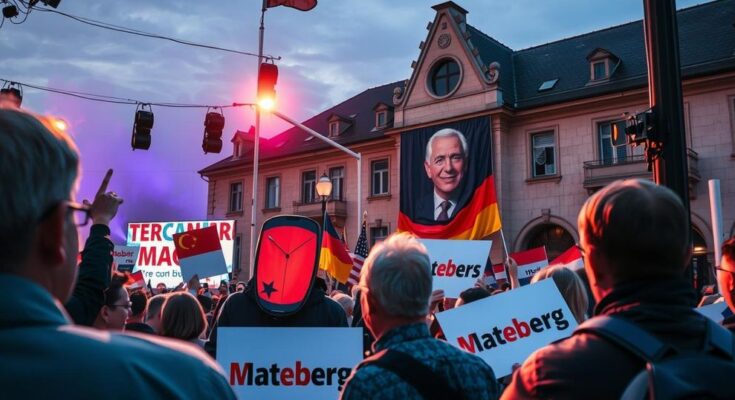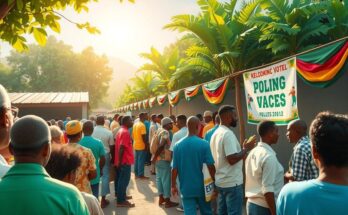The recent attack at the Magdeburg Christmas market has sparked significant political ramifications, with the far-right AfD party leveraging the incident to promote their anti-migration stance. In the wake of misinformation, experts anticipate that such events will intensify debates on security and migration leading up to the February 2025 federal elections. Criticism of the government for failing to act on prior warnings highlights the urgent call for a reconsideration of domestic security policies.
In the aftermath of the tragic ramming incident at the Magdeburg Christmas market that claimed at least five lives, various political factions have sought to exploit the event for their agendas. Initial reports were marred with misinformation suggesting multiple attackers and radical speculations regarding their backgrounds. Prominent figures from the far-right Alternative for Germany (AfD) party highlighted the attack to further their narrative against migration policies, with notable members suggesting that better security measures could have prevented the tragedy.
Experts predict that such incidents will intensify discussions on security and migration ahead of the federal elections scheduled for February 2025. Political scientists observe that recent events tend to bolster right-wing rhetoric, framing migration predominantly as a security risk rather than recognizing its multifaceted impacts. Meanwhile, criticism is directed at the federal government for perceived lapses in security, particularly concerning prior warnings regarding the suspect. Concern over external influences, including misinformation campaigns, casts additional shadows over the electoral landscape in Germany, particularly given the apparent endorsement of the AfD by figures like Elon Musk post-incident.
The context surrounding the Magdeburg attack is rooted in ongoing debates in Germany regarding migration and national security. The event has incited a rush of politicization, with prominent right-wing parties positioning themselves as champions of tougher immigration policies in response to public fear of possible threats. Experts indicate a shifting political landscape where migration is increasingly viewed through the lens of security concerns, overshadowing discussions about the potential benefits of immigration, such as addressing labor shortages. Historical patterns of political maneuvering following incidents of violence inform expectations for the upcoming federal elections, where security issues are likely to dominate.
In essence, the Magdeburg attack has been seized upon by far-right factions to bolster their political narratives ahead of critical elections. This incident illustrates a growing trend in German politics where migration is predominantly framed as a security threat, overshadowing constructive discussions on integration and the benefits of diversity. The influence of foreign actors and misinformation complicates the political discourse further, signaling a challenging landscape for the upcoming elections. The actions taken by both political actors and societal responses will be crucial in shaping Germany’s immigration policies and security strategies moving forward.
Original Source: www.dw.com




